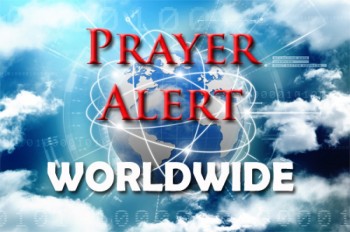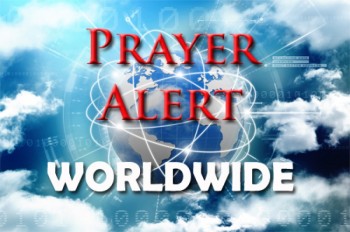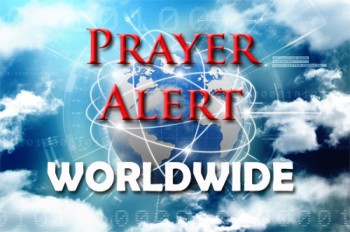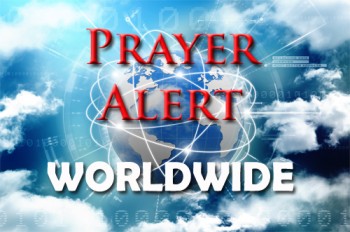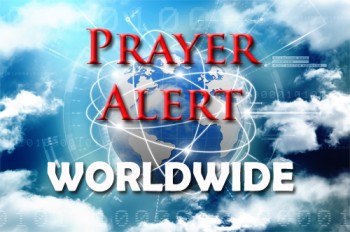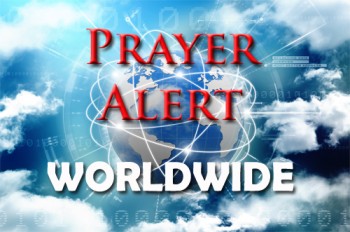Displaying items by tag: Asia
Palestine: campaign against political corruption
Deterioration of democratic policies in the Palestinian leadership has caused a coalition of nongovernmental organisations to call it ‘political corruption.’ For years this coalition, named AMAN, focused on administrative and financial corruption. Now the eroding integrity of the Palestinian leadership has forced Transparency International to tackle a corrupt political system that among other things cancelled a long-overdue national election and ordered its security forces to harm a Hebron critic, that led to his death. They have also violently cracked down on demonstrations calling for accountability. An AMAN manifesto recently called Palestinians to reject the anti-democratic slippery slope and ‘fight this political corruption by creating a coalition that can contribute toward a more honest governance structure.’ If the current political corruption is not checked, Palestine will move into a dangerous zone.
Myanmar: New sanctions
Since the February 1st military takeover, at least 1,045 protesters have been killed by security forces, and over 6,000 are currently in detention. The UK’s foreign ministry said it would impose an asset freeze on conglomerate Htoo Group of Companies and its founder Tay Za, who is involved in arms deals on behalf of the military coup leaders. The military junta has shown no signs of halting its brutal attack on the people of Myanmar and the UK with its partners will continue to restrict the junta’s access to finance and confine the supply of arms used to kill innocents, including children. The US has sanctioned Myanmar’s Minister of Information Chit Naing, Minister for Investment Aung Naing Oo, Labour and Immigration minister Myint Kyaing, and Thet Thet Khine, the minister for social welfare, relief and resettlement, as well as three members of the powerful State Administrative Council and their families – who are linked to the military coup.
Malaysia: Couple thrown out for their faith
Islam is Malaysia’s official religion. People can practice other religions, but ethnic Malays are banned from leaving Islam. Aadam and his wife Kasih are Muslim-background believers facing hardships because they decided to follow Christ four years ago. A young couple with a passion to serve people have been persecuted by family and the community as they lead a few house churches with dozens of believers. The couple and their toddler son and newborn baby were thrown out of their house once their faith in Christ was discovered. Because of lockdown, Aadam was unable to work driving his lorry which was also recently deemed unroadworthy. They had nowhere to stay and no way to earn a living. International Christian Concern heard about their predicament and provided house rental and repair for his lorry, plus two months of groceries. Kasih was so emotional she could not stop crying.
Afghanistan: Taliban showing its colours
The Taliban is giving American-made military equipment to Iran. A report by Iran International showed images posted on social media of equipment in Tehran and armoured tanks and Humvees being transported towards Tehran. Two of the images were posted by the acting Defense Minister of Afghanistan. Last week Iran offered to resume fuel shipments to Afghanistan to prevent an economic collapse. Basic services like electricity are under threat, and there are food and cash shortages. On September 8th the Taliban showed that it is re-establishing its Islamic Emirate of Afghanistan with a caretaker government of hard-liner men from the 1990s. The theocratic Taliban core remains unchanged with several members of their governing body listed as terrorists. Few were non-Pashtun. Pray for the Taliban to respect women and minorities rights. See
Pakistan to Afghanistan: Christian convoy
A convoy of 100+ Christians, including at least fifteen families, will leave Afghanistan to make a new life in Pakistan. It is not a hospitable country for Christians, but Afghanistan has become much worse with the Taliban in charge. Leaders of house churches have already received threatening letters from the Taliban, warning them that they know where they are and what they are doing. They are ‘on a list.’ The convoy is being led by a pastor who serves ten Afghan house churches. He was a Muslim until his life was turned around when someone shared the Gospel with him. The ages of the people in this convoy range from three months to 70 years. There are no buses, no trains running between Afghanistan and Pakistan: so this convoy will be taking, for lack of a better word, taxis. Ask God to give them strength and ask Him to frustrate the plans of any wanting to stop them.
Israel: US reopening consulate a 'bad idea'
Israel’s foreign minister, Yair Lapid, has called the Biden administration’s plan to reopen the US consulate in Jerusalem a ‘bad idea’ that could ‘destabilize’ Israel’s new government. He said it would send the wrong message not only to the region or to the Palestinians, but also to other countries, adding, ‘We don’t want this to happen’. His comments come after Biden reportedly discussed the issue with Israel’s ultraconservative prime minister, Naftali Bennett, last week at the White House. The Times of Israel cited unnamed officials as saying the Biden administration agreed to wait to open the consulate until after Bennett’s fragile new government passes a budget in November.
Afghanistan: Illegal drug trafficking
As the Taliban secures its grip on Afghanistan, UN Security Council officials are warning that the militant group is reliant on drug trafficking as its primary sources of financing, and opium poppy production has increased significantly. They also said the problem of production of poppy-based drugs and methamphetamine was ‘unaddressed’ by the Afghan peace process, even though it remains the Taliban’s largest single source of income. Opium has a destabilising and corrupting effect within Afghanistan and contributes significantly to the narcotics challenges facing the wider international community. Taliban financing is also sourced by other criminal activities including extortion, kidnapping for ransom, mineral exploitation, and revenues from tax collection in areas under their control or influence. The UN office of drugs and crime estimates that taxes collected from drug farmers alone were about $14.5 million, while another $46 to $98 million comes in from heroin manufacturing and trafficking.
India: new wave of persecution
At least 30 Christians in India’s Uttar Pradesh have recently been falsely accused of forced religious conversions. This was triggered after Hindu nationalists, including members of the BJP party, claimed two Muslim men forcefully converted 1,000 people. BJP politicians publicly praised the arrests and warned against fraudulent conversions of Hindus to other faiths. Now Christians in Uttar Pradesh are being attacked by radical Hindu nationalists justifying their assaults by falsely accusing the Christians of illegal conversions. Similar anti-conversion laws and abuse of Christians are being enacted in eight other states. ‘This is a grave situation for Christians. ‘There is zero response from the Yogi administration. The attacks are mainly perpetrated by hardcore Hindutva activists who enjoy the support of the politicians’, said a church leader, who requested anonymity.
Japan: huge army of under-employed ex-housewives
There are many smart, educated women who could drive Japan out of its economic slump to a stunning economic recovery, but the rigid hiring system and male-dominated leadership block women from the best-paid jobs. Japan risks becoming a nation of bored housewives with university degrees. Parliament declared it would significantly increase the number of women in leadership by 2020, but the deadline quietly came and went without getting close to its target. Critics believe the aim had little to do with women thriving at work and more to do with an acute need for workers. The working-age population has been rapidly shrinking since the 1990s. Many women are stuck in part-time or dead-end roles which pay 40% lower than men. Companies are reluctant to have more women in their workforces, but the drive for change could come from international companies hiring graduates with gender equality.
Bold Afghan Christians share gospel with Taliban
Incredibly, many believe Afghanistan has the second-fastest growing church in the world, next to Iran. There are reports of Afghan Christians choosing to stay and share the gospel, saying, ‘we don’t care, we’re here because we love this nation, we love our people, and we’re going to share the gospel regardless, even if it means losing our lives.’ In one village that was taken over a few weeks ago, the Christians started sharing Bible stories with the Taliban, some of whom have been studying the Bible and praying. They haven’t made a confession of faith yet but seem very interested. The fearless nature of these believers reminds us of those in the Book of Revelation: ‘They overcame him by the blood of the Lamb and the word of their testimony. They did not love their lives unto death.’ We are seeing this in real time.

